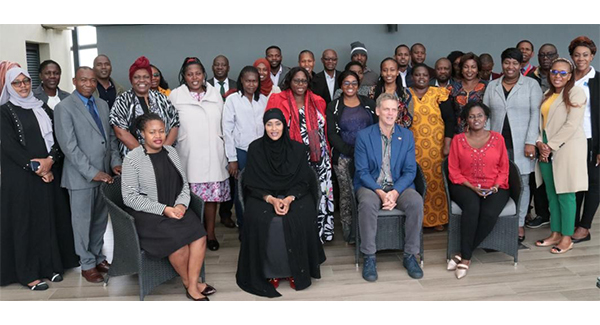Strengthening Gender-Responsive Budgeting in Kenya: A Call for Equity and Inclusion
NAIROBI, Kenya – In a significant move to advance inclusive legislative practices, the National Gender and Equality Commission (NGEC) partnered with the African Centre for Parliamentary Affairs (ACEPA) to convene a workshop focused on Gender-Responsive Budgeting (GRB). Held recently, the event brought together key stakeholders from across the political and development sectors to discuss how budgetary processes can promote gender equity and social inclusion in Kenya.
The forum, presided over by NGEC Chairperson Hon. Rehema Jaldesa, featured a series of high-profile speakers, including Peter Hadwen, Director of the Parliamentary Centre & MENA. The gathering marked an important moment for stakeholders committed to ensuring that public budgets are not only equitable but also effectively address the needs of Kenya’s most vulnerable populations.With Kenya’s Constitution and legal frameworks advocating for equitable resource allocation, GenderResponsive Budgeting has become a key tool in aligning government expenditure with the principles of gender equality and inclusion.
The principle of GRB ensures that the resources allocated by the government serve all citizens fairly, with special attention given to marginalized groups, including women, youth, persons with disabilities, and other vulnerable communities.
However, the workshop highlighted a persistent challenge in Kenya’s budgeting process: a gap between policy commitments and their actual financial allocations. Despite the country’s progressive legal and constitutional frameworks, these discrepancies often limit the tangible impact of GRB initiatives.
Chairperson Hon. Rehema Jaldesa addressed this issue, stressing the importance of stronger legislative oversight and the need for effective enforcement mechanisms. “It is crucial that budget allocations reflect the values of equity and inclusion. This can only be achieved through robust monitoring and accountability measures,” said Hon. Jaldesa in her keynote address.
The workshop also underscored the growing importance of datadriven decision-making in the budgeting process. Participants collectively called for the improvement of genderdisaggregated data, which is vital in guiding more accurate and effective budgetary allocations. By incorporating comprehensive data into the budgeting process, policymakers can better identify the specific needs of different groups within society, ensuring that no one is left behind.
As Kenya moves towards sustainable development, stakeholders emphasised that gender-sensitive budgeting is not only a legal requirement but also an ethical imperative. Peter Hadwen, Director of the Parliamentary Centre & MENA, echoed this sentiment, calling on lawmakers and public officials to integrate gender considerations into every aspect of the budgeting process.
The workshop participants also agreed that ensuring genderresponsive budgeting across the country requires concerted efforts from all sectors, including government agencies, civil society, and development partners. It is clear that a collective approach is needed to transform the principles of gender equality and inclusion into concrete financial allocations that improve the lives of all Kenyans.
The NGEC, alongside ACEPA and other stakeholders, remains committed to advancing these objectives and ensuring that future budgeting processes are both equitable and reflective of Kenya’s diverse population.
Chairperson Hon. Rehema Jaldesa and Peter Hadwen, Director of the Parliamentary Centre, join workshop participants for a group photo


Comments